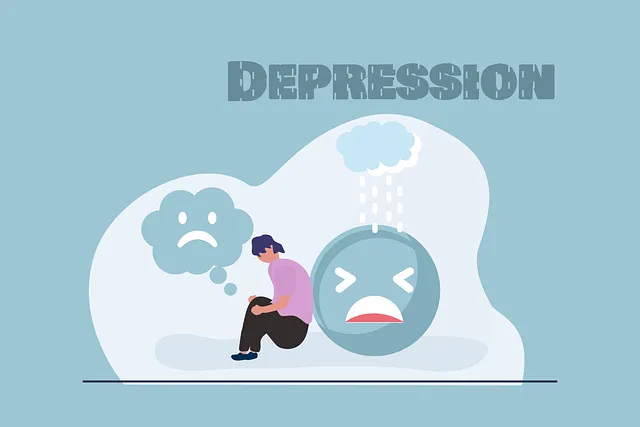The RFM framework (Recovery, Flexibility, Mastery) promotes resilience and mental well-being, as evidenced by superior Kaiser Permanente mental health center reviews. This model teaches individuals to adapt to change, manage stress, and view challenges as learning opportunities through mindfulness, cognitive reframing, and mood management techniques. Implementing RFM in Kaiser Permanente centers enhances services, improves mental health outcomes (reducing anxiety and depression), and encourages long-term empowerment against mental health issues, as praised by patients. Success is measured through patient satisfaction, clinical assessments, and reduced symptom indicators, with public awareness campaigns further promoting the framework's benefits.
Resilience is a key factor in mental well-being, especially in today’s challenging landscape. This article explores the powerful tool of RFM (Resilience, Flexibility, and Mastery) and its role in enhancing resilience at Kaiser Permanente mental health centers. We delve into the benefits of implementing RFM exercises, offering superior patient care and improved outcomes. Through effective integration strategies, these centers are revolutionizing mental health programs, as evidenced by positive reviews. Learn how measuring success through evaluation can ensure a robust RFM implementation.
- Understanding RFM and its Role in Resilience Building
- The Benefits of Implementing Resilience Exercises at Kaiser Permanente Mental Health Centers
- Effective Strategies for Integrating RFM into Mental Health Programs
- Measuring Success: Evaluating the Impact of RFM on Patient Outcomes
Understanding RFM and its Role in Resilience Building

Resilience is a crucial aspect of mental well-being, enabling individuals to navigate life’s challenges and maintain emotional equilibrium. This is where RFM (Recovery, Flexibility, and Mastery) comes into play as a powerful framework for resilience building. The RFM model, often utilized in superior Kaiser Permanente mental health center reviews, focuses on enhancing an individual’s ability to recover from adverse experiences, adapt to change, and regain control over their life.
By incorporating communication strategies that foster open dialogue, promoting inner strength development through mindfulness and cognitive reframing, and teaching effective mood management techniques, RFM exercises empower individuals to build resilience. These exercises are designed to help people develop a growth mindset, fostering an environment where challenges are seen as opportunities for learning and personal growth. This approach is particularly beneficial in today’s fast-paced world, where navigating complex emotions and external pressures can be overwhelming.
The Benefits of Implementing Resilience Exercises at Kaiser Permanente Mental Health Centers

Implementing resilience exercises at Kaiser Permanente Mental Health Centers offers a multitude of benefits that extend far beyond individual patient care. By integrating practices such as mindfulness meditation and self-esteem improvement into treatment plans, these centers are not only enhancing their services but also contributing to improved mental health outcomes on a broader scale. Studies have shown that resilience building exercises can significantly reduce symptoms of anxiety and depression, ultimately leading to higher patient satisfaction and better quality of life.
In the context of superior Kaiser Permanente mental health center reviews, patients often praise the holistic approach these centers take in addressing their mental health needs. Resilience exercises provide tools for managing stress and emotional challenges, empowering individuals to maintain their mental wellness even outside the clinical setting. This proactive approach not only prevents relapse but also fosters a sense of empowerment and self-efficacy, which are crucial elements in building long-term resilience against mental health issues such as depression prevention.
Effective Strategies for Integrating RFM into Mental Health Programs

Integrating RFM (Resilience, Flexibility, and Mindfulness) into mental health programs offers a holistic approach to fostering well-being. At superior Kaiser Permanente mental health centers, reviewed for their comprehensive services, professionals employ tailored strategies to enhance clients’ resilience. This involves teaching effective stress management techniques, encouraging the development of self-care routines, and fostering an environment that reduces the stigma surrounding mental illness.
By incorporating RFM practices, these centers empower individuals to navigate life’s challenges with greater ease. Mindfulness exercises, for instance, help individuals cultivate present-moment awareness, enabling them to respond rather than react to stressors. This, in turn, strengthens their ability to maintain emotional balance and promote overall mental health.
Measuring Success: Evaluating the Impact of RFM on Patient Outcomes

Measuring success is a vital aspect when implementing resilience-focused interventions like RFM (Recovery-Oriented Mindset) in mental health care settings. Evaluating the impact of RFM on patient outcomes allows healthcare providers at superior Kaiser Permanente mental health centers to assess the effectiveness of these programs. By integrating RFM principles, patients are equipped with tools to foster positive thinking and develop conflict resolution techniques, leading to improved coping mechanisms and overall well-being.
The success of RFM can be gauged through various metrics such as patient satisfaction surveys, clinical assessments, and feedback from both patients and healthcare professionals. Positive shifts in patient outcomes, including reduced symptoms of anxiety and depression, enhanced resilience, and better adherence to treatment plans, indicate the program’s effectiveness. Moreover, public awareness campaigns development around RFM can further highlight its benefits, encouraging more individuals to seek mental health support and embrace a recovery-oriented mindset.
The implementation of RFM and resilience-building exercises at Kaiser Permanente mental health centers has shown significant promise in enhancing patient outcomes, as evidenced by numerous superior Kaiser Permanente mental health center reviews. By integrating these strategies into existing programs, healthcare providers can foster a more resilient environment, ultimately improving the well-being of patients long-term. This holistic approach to mental health care not only addresses immediate needs but also equips individuals with valuable tools to navigate life’s challenges effectively.

